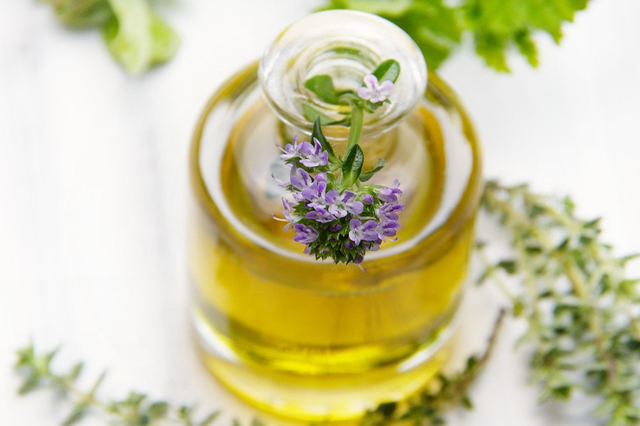 Loading... Please wait...
Loading... Please wait...- 07424059882
- Home
- My Account
- Gift Certificates
- View Cart
Change Currency
Categories
Blog - acne
The Best Diet Tips to Control Hormonal Spots and Acne.
Posted by Penny Badger on 29th Nov 2019

If you have acne or hormonal flare ups you’re not alone, it affects up to 80% of people at some point between the ages of 11 and 30 and although hormonal spots are most common during the teenage years, it sadly can continue into adulthood, and some may even experience it their entire life
It is usually appears on the jawline, chin, neck and can show as spots, often big and can be blind under the skin’s surface and cyst-like – can be painful to touch and hard to treat.
Thankfully, lifestyle factors, including your diet, can play a powerful role in controlling and reducing symptoms.
This article reviews the best diet for hormonal flare ups, spots and acne, including foods to eat and avoid, as well as supplements and skin care that may help.
Hormones play an important role in the development of spots and acne, which is why it’s often referred to as “hormonal acne.” It typically occurs during adolescence due to increases in sex hormone levels during puberty, regardless of gender.
Women also experience acne later in life related to hormonal fluctuations during pregnancy premenopause, and when using hormonal birth control.
Inflammation and diet are thought to play a role as well and there is strong evidence that some dietary changes make a significant difference.
Blood Sugar Control
Avoiding blood sugar spikes by following a low-glycemic-index diet to control hormonal skin problems and acne is one theory that has gained momentum in the science world.
The glycemic index (GI) is a measure of how slowly or quickly a food spikes your blood sugar levels.
Choosing foods with a high GI, such as white bread, sweets and ice cream, fizzy drinks can cause dramatic fluctuations in blood sugar and can make skin worse.
Eating sugary foods increases levels of insulin, which is a hormone that moves sugar out of your blood and into your cells where it can be used for energy. This stimulates the release of other hormones, such as insulin-like growth factor 1 (IGF-1).
This increase in hormones leads to hyperkeratinization and excess sebum production, which can worsen spotty skin and acne.
Some studies have shown significant improvements in hormonal acne in people following a low-GI, high-protein.
It is important to know that though acne is widespread in Westernized populations following high-GI diets laden with sugary foods, the condition is rare in populations eating traditional diets that don’t include refined sugars or processed food, so it makes sense to cut out as much refined foods as you can.
It is thought that milk and dairy in general promote insulin secretion and the production of hormones, such as IGF-1, which is known to be a major contributor to acne development.
Eat Nutrient Dense Foods.
Following a nutrient-dense diet is one of the best ways to treat and prevent hormonal spots and acne naturally. Given that inflammation causes spots and acne, choosing foods that reduce inflammation is vital.
Anti-inflammatory omega-3 fat sources, such as fatty fish and chia seeds are better for the body than potentially inflammatory omega-6-rich fat sources like soybean oil.
Filling your plate with colorful vegetables and fruits is another way to tame inflammation and reduce acne or spots. These foods deliver anti-inflammatory antioxidants and vitamin C, to your body.
Considering that acne is closely linked to Western diets high in processed foods, choosing whole foods and limiting or avoiding highly refined products is important when trying to treat your acne through diet.
- Vegetables: broccoli, spinach, Kale, chard, peppers, zucchini, cauliflower, carrots, beets
- Fruit: Blueberries, grapefruit, oranges, apples, cherries, bananas, pears, grapes, peaches, kiwis
- Whole grains and starchy vegetables: Sweet potato, quinoa, butternut squash, brown rice, oats, buckwheat
- Healthy fats: whole eggs, olive oil, avocados, nuts, seeds, nut butters etc.
- Plant-based dairy alternatives: cashew milk, almond milk, coconut milk, coconut yogurt (unsweetened)
- High-quality protein: salmon, tofu, chicken, turkey, eggs
- Legumes: any beans, chickpeas, black beans, lentils, kidney beans
- Anti-inflammatory herbs and spices: cinnamon, black pepper, parsley, garlic, ginger, cayenne, turmeric
- Unsweetened drinks: water, sparkling water, herb teas, hibiscus tea, lemon water, green tea is particularly beneficial to the skin.
Foods to avoid
Dairy products, refined foods, and high-sugar foods and drinks should be eaten occasionally and not every day.
- Milk and dairy products: milk, cheese, yogurt
- Highly processed foods: fast food, frozen meals, meal bars, sugary cereals, chips, microwave meals, white bread, white pasta
- Sweets and sugary beverages: candy, cake, fizzy drinks, cakes, biscuits, table sugar, energy drinks, sweetened sports drinks, juice
In conclusion: Eating a wholefood and nutrient dense diet will help reduce inflammation in the body and skin and will assist the body to naturally control sebum and keep skin clear.
It is vital to control stress levels as stress disrupts your hormones making breakouts worse.
Simple daily strategies can help such as yoga or meditation, even if you can only find 10 minutes out of your day you will reap the benefits, and trying to get out for a walk in nature has been proven to reduce stress almost instantly. Leaving the office at lunch time and going for a walk or eating outside will help stress levels enormously.
Skin Care
The right skin care can play a crucial role in containing and even avoiding hormonal breakouts.
Using natural products that are specific to your skin concern is vital and should contain ingredients that are non-comedogenic so won’t block pores. Products should use skin friendly anti-inflammatory plants and herbs that along with an anti-inflammatory diet will with continued use balance the skin and bring it to a normal condition, remember we are all born with perfect skin.
Look for ingredients that contain Green Tea a natural anti-oxidant that is good in skincare and not just in your cuppa.
Liqourice and pomegranate are both potent anti-inflammatory herbs and should be in your skincare
Penny Badger Botanicals Skin Care uses a host of anti-inflammatory herbs and skin friendly plant oils with products specifically formulated to help problem skin.
We have had great success with helping customers with problem and spotty skin by following our suggested lifestyle and diet tips and using the recommended products for oily and acne skin.
More information can be found at www.pennybadger.com
Author: Penny Badger
Penny Badger Botanicals

Controlling Acne Naturally
Controlling Acne Naturally Penny Badger Botanicals Skin CareCounter-intuitive as it sounds, plant oils can be your saviour when you suffer from spots, breakouts or acne. Traditional anti-acne products contain anti-inflammatory, anti-bacterial and soothing compounds but are often harsh and dry the skin making the skin worse by producing more oil. This causes the skin to over-compensate for the reduction of [...]

Suffering from Acne, you are not alone.
If you are suffering from acne or congested, spotty skin you are not alone. Acne has been estimated to affect 633 million people globally, making it the 8th most common disease worldwide. Acne commonly occurs at the onset of puberty and affects an estimated 80–90% of teenagers in the western World. Children and adults may also be affected before and [...]




